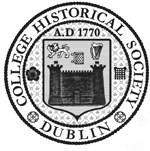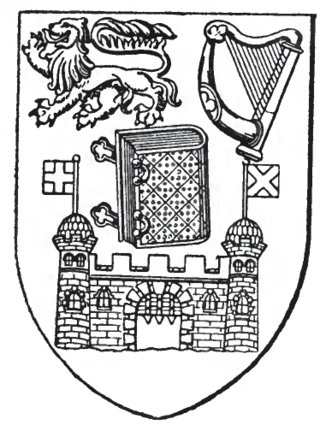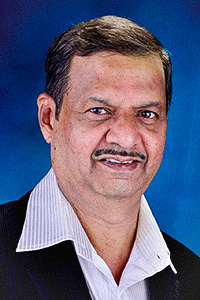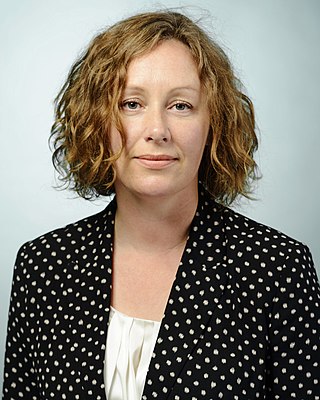Related Research Articles

Trinity College, officially The College of the Holy and Undivided Trinity of Queen Elizabeth near Dublin, is the sole constituent college of the University of Dublin, a research university in Dublin, Ireland. Queen Elizabeth I founded the college in 1592 as "the mother of a university" that was modelled after the collegiate universities of Oxford and Cambridge, but unlike these affiliated institutions, only one college was ever established; as such, the designations "Trinity College" and "University of Dublin" are usually synonymous for practical purposes.
The Society of Motion Picture and Television Engineers (SMPTE), founded in 1916 as the Society of Motion Picture Engineers or SMPE, is a global professional association of engineers, technologists, and executives working in the media and entertainment industry. As an internationally recognized standards organization, SMPTE has published more than 800 technical standards and related documents for broadcast, filmmaking, digital cinema, audio recording, information technology (IT), and medical imaging.

Patrick J. Prendergast FIEI, MRIA, FREng is an Irish engineer, specialised in bioengineering, and held a named professorial chair and other senior roles prior to his serving as the 44th Provost of Trinity College Dublin, the university's chief officer, for the 2011–2021 term. He has published more than 200 papers and volumes, and been cited widely.

The College Historical Society (CHS) – popularly referred to as The Hist – is a debating society at Trinity College Dublin. It was established within the college in 1770 and was inspired by the club formed by the philosopher Edmund Burke during his own time in Trinity in 1747. It holds the Guinness World Record as the "world's oldest student society".
The Cineon System was one of the first computer based digital film systems, created by Kodak in the early 1990s. It was an integrated suite of components consisting a Motion picture film scanner, a film recorder and workstation hardware with software for compositing, visual effects, image restoration and color management.

The Library of Trinity College Dublin serves Trinity College. It is a legal deposit or "copyright library", under which, publishers in Ireland must deposit a copy of all their publications there, without charge. It is the only Irish library to hold such rights for works published in the United Kingdom.

The Trinity Centre for Asian Studies (TCAS) is a multidisciplinary teaching and research centre for East Asian scholarship at Trinity College in Dublin, Ireland.
John Anthony "Tony" Scott is an Irish physicist and science communicator. He co-founded with Tom Burke the Young Scientist and Technology Exhibition in 1963.

Lynn Ruane is an Irish politician who has served as an Independent Senator for the Dublin University constituency in Seanad Éireann since April 2016. She was the President of the Trinity College Dublin Students' Union from 2015 to 2016.

Samson Lulievich Shatashvili is a theoretical and mathematical physicist who has been working at Trinity College Dublin, Ireland, since 2002. He holds the Trinity College Dublin Chair of Natural Philosophy and is the director of the Hamilton Mathematics Institute. He is also affiliated with the Institut des Hautes Études Scientifiques (IHÉS), where he held the Louis Michel Chair from 2003 to 2013 and the Israel Gelfand Chair from 2014 to 2019. Prior to moving to Trinity College, he was a professor of physics at Yale University from 1994.

Ujwal Nirgudkar is a Technical Advisor for India’s National Film Heritage Mission and a chemical engineer by training. He member of the Academy of Motion Picture Arts and Sciences, joining the Class of 2017. He is the first Indian to join the Academy as a member-at-large, having worked in the film industry for 36 years. He started his career at the Filmcenter Laboratory in Tardeo, Mumbai as a Technical Manager in May 1981. When the Filmcenter management closed operations in 2000, he joined Filmlab in Goregaon-East, Mumbai. He was initially appointed as General Technical Manager and took part in setting up a state-of-the-art film processing laboratory. He rose to the position of Technical Director on the Filmlab board of directors in July 2007.
Jane Ohlmeyer,, is a historian and academic, specialising in early modern Irish and British history. She is the Erasmus Smith's Professor of Modern History (1762) at Trinity College Dublin and Chair of the Irish Research Council, which funds frontier research across all disciplines.
Rachel Claire EvansFLSW is a Welsh chemist based at the University of Cambridge and a fellow of Jesus College, Cambridge. She works on photoactive polymer-hybrid materials for solar devices, including organic photovoltaics and stimuli-responsive membranes.
Rose Anne Kenny is an Irish geriatrician. She is the Regius Professor of Physic and a professor of medical gerontology at Trinity College Dublin (TCD), director of the Falls and Black-out Unit at St James's Hospital in Dublin, director of the Mercer's Institute for Successful Ageing and founding principal investigator for The Irish Longitudinal Study on Ageing (TILDA). She was admitted in 2014 to the Royal Irish Academy in recognition of academic excellence and achievement. Kenny is a fellow of Trinity College Dublin and of the Royal Colleges of Physicians of Ireland, London and Edinburgh.
Rocco Lupoi is an Italian lecturer, assistant professor and researcher in mechanical and manufacturing engineering at Trinity College Dublin, Ireland. He is an expert on cold spray additive manufacturing, selective laser melting, and similar deposition methods.
Sinéad M. Ryan is an Irish theoretical physicist and professor of Theoretical High Energy Physics at Trinity College Dublin. Her research covers "high-energy particle physics, and how particles in atoms such as quarks and gluons stick together".

The School of Engineering, Trinity College Dublin is the oldest engineering school in Ireland and one of the oldest in the world. It provides undergraduate, taught postgraduate and research degrees in engineering. It is the highest-ranked engineering school in Ireland by QS Rankings and by Times World University Rankings.

Linda E. Doyle is an Irish academic and educator who is the 45th provost and president of Trinity College Dublin (TCD), the university's chief officer. An electrical engineer, she has had a long academic career at Trinity, from the 1990s, most recently as Professor of Engineering and the Arts, in addition to holding other management roles such as Dean of Research. She has also led one telecommunications research centre at the university, and was the founding director of another, the multi-institution organisation known as CONNECT. Doyle has worked as a member of regulatory and advisory bodies in both Ireland, on broadband network strategy, and the UK, on mobile spectrum allocation. She is or has also been a director of public outreach projects such as Science Gallery Dublin and its international network, of two non-profit art galleries, and of two university spin-off companies.

Jennifer Claire McElwain is an Irish palaeobotanist. She is a full professor in the Trinity College Dublin's (TCD) School of Natural Sciences and hold the 1711 Chair of Botany. She is also the Director of Trinity College Botanic Garden. McElwain held the position of Assistant Curator of Paleobotany at the Field Museum of Natural History in Chicago between 2000 and 2003 and later Associate Curator of Paleobotany from 2003 until 2006.
John Gabriel Byrne was an Irish computer scientist and engineer. He founded the department of computer science in Trinity College Dublin, serving as its first head and professor, and has been referred to as "The Father of Computing in Ireland".
References
- 1 2 "Anil Kokaram : Trinity Research - Trinity College Dublin". www.tcd.ie. Archived from the original on 8 November 2019. Retrieved 30 September 2019.
- ↑ "Dr Anil Kokaram Hall of Fame". hoba.org.tt. Archived from the original on 31 July 2021. Retrieved 30 September 2019.
- ↑ "School History". hoba.org.tt. Archived from the original on 19 October 2019. Retrieved 30 September 2019.
- ↑ "Gore, Frederick John Pym, (8 Nov. 1913–31 Aug. 2009), painter; Head of Painting Department, St Martin's School of Art, WC2, 1951–79, and Vice-Principal, 1961–79", Who Was Who, Oxford University Press, 1 December 2007, doi:10.1093/ww/9780199540884.013.u17619
- ↑ "Media Professionals, Trinidad". www.facebook.com. Retrieved 30 September 2019.
- ↑ "South Asian Outlook - An Independent Monthly". www.southasianoutlook.com. Archived from the original on 10 May 2023. Retrieved 30 September 2019.
- ↑ "MOTION PICTURE RESTORATION". www.mee.tcd.ie. Archived from the original on 25 December 2010. Retrieved 30 September 2019.
- 1 2 "Trinity's Oscar Winner on Changing the Face of Film". www.universitytimes.ie. Archived from the original on 13 April 2019. Retrieved 30 September 2019.
- 1 2 3 4 "Anil Kokaram Icons". Icons. 14 July 2017. Archived from the original on 5 September 2019. Retrieved 30 September 2019.
- ↑ "Signal Processing and Communications Laboratory". sigproc.eng.cam.ac.uk. Archived from the original on 21 October 2019. Retrieved 30 September 2019.
- ↑ Paul (30 April 2017). "Greystones Guide | Missing Bray Woman Found". Greystones Guide. Archived from the original on 26 July 2017. Retrieved 30 September 2019.
- ↑ "KOKARAM, Stefanie : Death notice - Irish Times Family Notices". notices.irishtimes.com. Archived from the original on 14 June 2017. Retrieved 30 September 2019.
- ↑ "Search for Stefanie comes to sad conclusion". Independent.ie. Archived from the original on 20 September 2017. Retrieved 30 September 2019.
- ↑ Denman, Hugh; Doyle, Erika; Kokaram, Anil; Lennon, D.; Dahyot, Rozenn; Fuller, Ray (10 November 2005). "Exploiting temporal discontinuities for event detection and manipulation in video streams". Proceedings of the 7th ACM SIGMM international workshop on Multimedia information retrieval - MIR '05 (PDF). pp. 183–192. doi:10.1145/1101826.1101857. ISBN 1595932445. S2CID 9732607. Archived (PDF) from the original on 10 May 2023. Retrieved 17 November 2022.
- ↑ "SIGMEDIA - Research Overview". www.mee.tcd.ie. Archived from the original on 16 September 2019. Retrieved 30 September 2019.
- ↑ "SIGMEDIA - People of the Sigmedia Group". www.mee.tcd.ie. Archived from the original on 30 September 2019. Retrieved 30 September 2019.
- ↑ "ADAPT: The Global Centre of Excellence for Digital Content and Media Innovation". www.adaptcentre.ie. Archived from the original on 18 November 2019. Retrieved 30 September 2019.
- ↑ Burke, Elaine (7 December 2016). "What is the future of video technology?". Silicon Republic. Archived from the original on 27 October 2020. Retrieved 30 September 2019.
- ↑ Komplett (22 January 2010). "Interview – Prof Anil Kokaram: The Oscar Winner". Komplett Ireland. Archived from the original on 10 May 2023. Retrieved 30 September 2019.
- 1 2 "Google Research Page - Anil Kokaram". ai.google. Archived from the original on 12 March 2019. Retrieved 30 September 2019.
- ↑ "Anil Kokaram | Trinity College Dublin, Dublin | TCD | Department of Electronic and Electrical Engineering". ResearchGate. Retrieved 30 September 2019.
- ↑ "Anil Kokaram - Google Scholar Citations". scholar.google.com. Archived from the original on 13 May 2023. Retrieved 30 September 2019.
- ↑ Kokaram, Anil C. (1998). Motion Picture Restoration: Digital Algorithms for Artefact Suppression in Degraded Motion Picture Film and Video. London: Springer-Verlag. ISBN 9781447134879.
- ↑ Kokaram, Anil C. (18 December 2013). Google Books Online : Motion Picture Restoration: Digital Algorithms for Artefact Suppression in Degraded Motion Picture Film and Video. Springer Science & Business Media. ISBN 9781447134855.
- ↑ Grotticelli, Michael (19 March 2011). "Google buys company to improve YouTube video quality". TvTechnology. Archived from the original on 27 November 2020. Retrieved 30 September 2019.
- 1 2 "LinkedIn Page of Anil Kokaram". (Personal page i.e. unofficial and potentially unreliable source).
- 1 2 "Anil Kokaram : MPhil in Music and Media Technology - Trinity College Dublin". www.tcd.ie. Archived from the original on 2 November 2019. Retrieved 30 September 2019.
- ↑ "Module Descriptor - Computational Engineering" (PDF). TCD Website. Archived (PDF) from the original on 1 November 2019.
- ↑ TEDxDUBLIN - Anil Kokaram -- The Mathematics of Bullet Time -- From Muybridge to the Matrix, archived from the original on 24 December 2020, retrieved 30 September 2019
- ↑ "Huawei Ireland Research Video Summit". Dublin.ie. Archived from the original on 14 November 2017. Retrieved 30 September 2019.
- ↑ "The 79th Scientific & Technical Awards 2006 | 2007". Oscars.org | Academy of Motion Picture Arts and Sciences. Archived from the original on 1 October 2019. Retrieved 30 September 2019.
- ↑ "TCD lecturer wins Academy Award". The Irish Times. Archived from the original on 10 May 2023. Retrieved 30 September 2019.
- ↑ Kennedy, John (13 September 2012). "Oscar winner plotted a digital route to Silicon Valley via Dublin and Hollywood - Life | siliconrepublic.com - Ireland's Technology News Service". Silicon Republic. Archived from the original on 24 February 2020. Retrieved 30 September 2019.
- ↑ Oliver, Emmet. "Trinity honours Patrick Murphy, Bruce Arnold and Jennifer Johnston". The Irish Times. Archived from the original on 10 May 2023. Retrieved 30 September 2019.
- ↑ "Engineers Ireland - Profile". www.engineersireland.ie. Retrieved 30 September 2019.[ permanent dead link ]
- ↑ "ITLG.org". 10 October 2014. Archived from the original on 10 October 2014. Retrieved 30 September 2019.
- ↑ "National Icons of Trinidad and Tobago" (PDF). Archived (PDF) from the original on 22 August 2018.
- ↑ Issue 86, Sonja Sinaswee | (1 July 2007). "Dr Anil Kokaram: from the Oscars to the Oval". Caribbean Beat Magazine. Archived from the original on 24 October 2021. Retrieved 30 September 2019.
- ↑ "Green Parrot Pictures home". 3 March 2011. Archived from the original on 3 March 2011. Retrieved 30 September 2019.
- ↑ "Iphone App Color Claw Review". Archived from the original on 8 September 2013.
- ↑ "Red Giant Film Fix v1.0 Software Plug-in for After Effects". www.bhphotovideo.com. Archived from the original on 10 May 2023. Retrieved 30 September 2019.
- ↑ "Where can I find Denoiser 1.0?". Red Giant FAQ. Archived from the original on 27 September 2020. Retrieved 30 September 2019.
- ↑ "Google buys Parrot to aid YouTube". 16 March 2011. Archived from the original on 3 February 2023. Retrieved 30 September 2019.
- ↑ "YouTube buys Irish firm Green Parrot Pictures - Companies | siliconrepublic.com - Ireland's Technology News Service". Silicon Republic. 16 March 2011. Archived from the original on 9 August 2020. Retrieved 30 September 2019.
- ↑ Reilly, Gavan. "Google buys Trinity College video processing startup". TheJournal.ie. Archived from the original on 1 November 2017. Retrieved 30 September 2019.
- ↑ "Red Giant | Denoiser is Being Removed Temporarily". Red Giant. 1 December 2011. Archived from the original on 3 February 2020. Retrieved 30 September 2019.
- ↑ "Biography Anil Kokaram" (PDF). sigproc.eng.cam.ac.uk. Archived (PDF) from the original on 27 January 2021.
- ↑ Siegert, Dr Wolf (30 September 2019). "No Show: SMPTE Forum Berlin (II)". DaybyDay ISSN 1860-2967 (in German). Retrieved 30 September 2019.[ permanent dead link ]
- ↑ "SMPTE 2015 Forum: Entertainment Technology in the Internet Age Conference | FKTG - Fernseh- und Kinotechnische Gesellschaft". www.fktg.org. Archived from the original on 17 June 2016. Retrieved 30 September 2019.
- ↑ "Research Fellows @ IAC". www.diplab.it. Archived from the original on 12 May 2021. Retrieved 30 September 2019.
- ↑ Association, Media Financial Management. "SMPTE(R) Partners With FKTG to Make SMPTE Forum 2015 in Berlin a Success". Multichannel. Archived from the original on 30 September 2019. Retrieved 30 September 2019.
- ↑ Killer Weekend, archived from the original on 15 November 2020, retrieved 30 September 2019